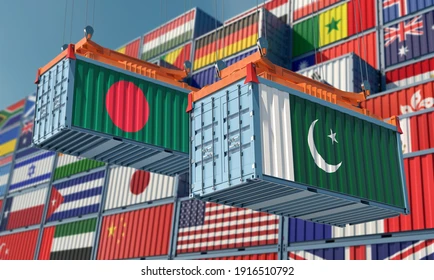Islamabad, Feb 25: Trade between Pakistan and Bangladesh has surpassed the $1 billion mark, signaling a renewed economic partnership between the two South Asian nations. The milestone comes amid growing interest from both sides to expand commerce across multiple sectors, with Bangladesh’s High Commissioner to Pakistan, Muhammad Iqbal Hussain Khan, underscoring the potential for deeper collaboration.
During his recent visit to Kasur and Faisalabad, the high commissioner met with business leaders to explore trade acceleration opportunities. He highlighted the strong demand for Pakistani goods in Bangladesh, particularly cotton, sugar, rice, apparel, and mangoes. Similarly, Bangladesh sees Pakistan as a promising market for its exports, including pineapples, jute, pharmaceuticals, and garments.
A significant breakthrough in trade relations has been the resumption of rice exports from Pakistan to Bangladesh after nearly two decades. Pakistan recently shipped 26,000 metric tons of rice through its national carrier as part of a government-to-government agreement, with an additional 24,000 metric tons set for delivery next month. The Trading Corporation of Pakistan (TCP) had invited bids in December following interest from Bangladesh Trading Corporation (BTC) to procure rice.
When the tender opened on January 6, 11 bids were received for long-grain white rice, with prices ranging from $498.40 to $523.50 per metric ton. However, no bids were submitted for non-basmati parboiled rice, prompting the issuance of a fresh tender with a February 27 deadline. The shipments, routed through Karachi Port, will be delivered to Chattogram and Mongla Ports in Bangladesh in break bulk cargo, packed in 50-kilogram polypropylene woven bags.
Beyond trade, diplomatic relations between Pakistan and Bangladesh have also gained momentum, with recent high-level interactions between Prime Minister Shehbaz Sharif and Nobel laureate Dr. Muhammad Yunus. Their discussions at international forums have focused on strengthening bilateral ties, with trade emerging as a key pillar of engagement. The ongoing developments suggest a promising trajectory for economic cooperation, fostering a mutually beneficial relationship between the two nations.
